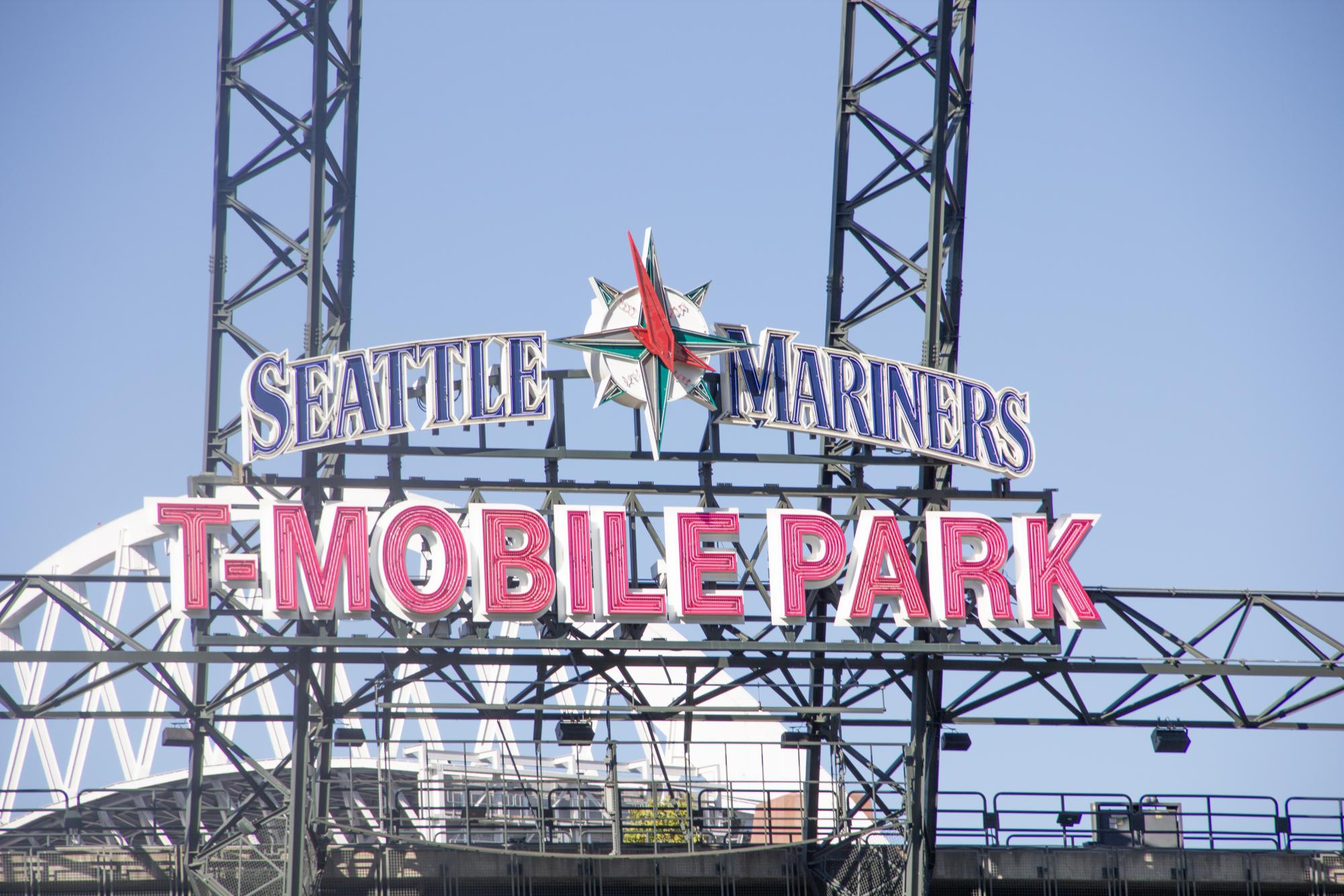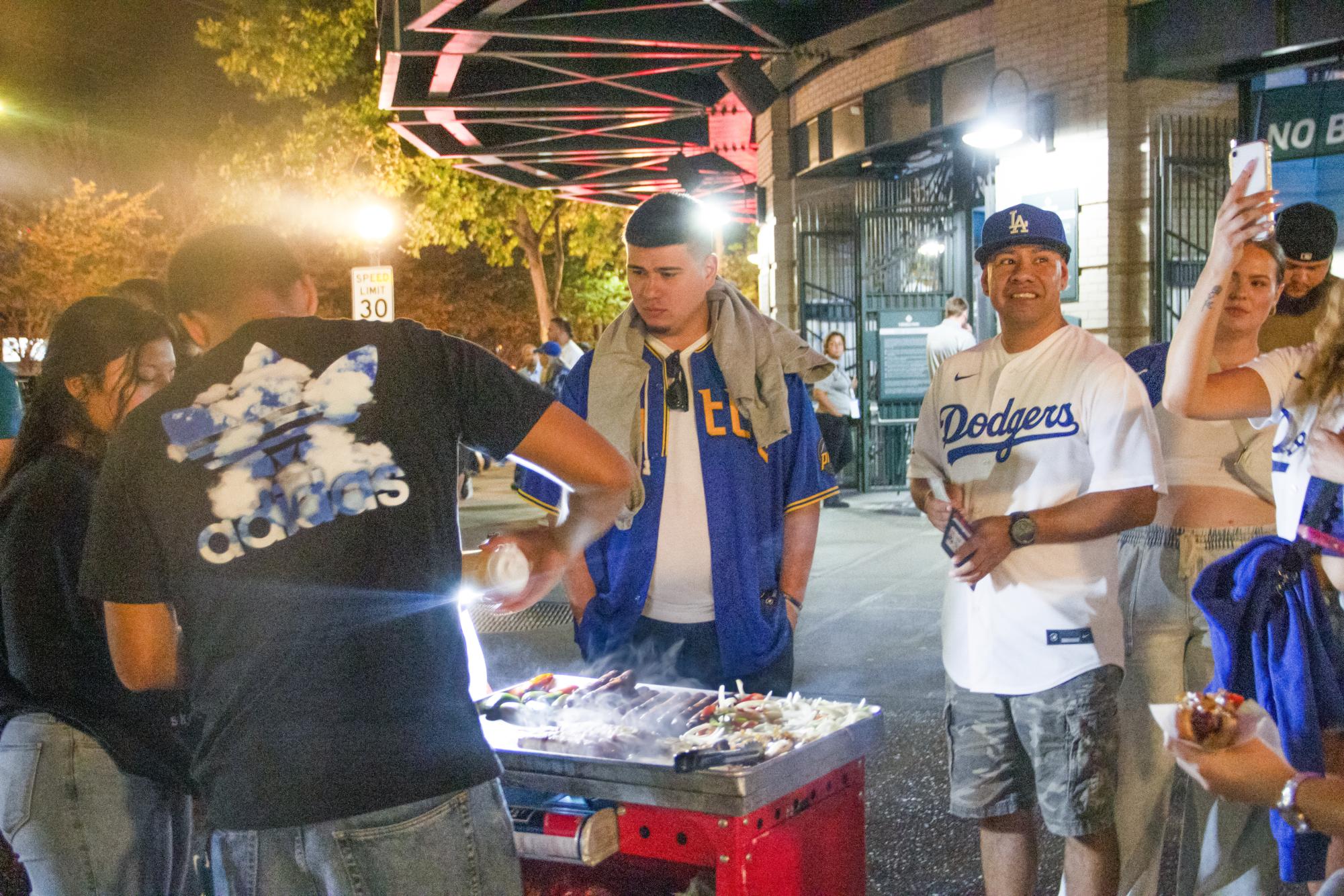
It’s Sept. 15, and T-Mobile Park, home of the Mariners, is buzzing with energy. In the packed stadium, fans exchange chants: “Let’s Go Mariners” vs. “Let’s Go Dodgers.” A few minutes before the game, a PSA displayed on the jumbotron warned that fans using discriminatory, intolerant language would be removed from the stadium. While race, and racism, in sports is often discussed in relation to players themselves, a core element is all too often overlooked; team culture. The Seattle Mariners, however, are determined to get it right.
In the stadium and on the field, the Mariners have a tripartite mission: “A commitment to winning, a commitment to our fans, a commitment to the Northwest community.”
Sitting in his stadium office, with Ted Lasso posters lining the halls, majority owner of the Mariners and Whitman class of 1977 alum John Stanton tells us that he views himself as the holder of the Mariners’ mission.
“Our mission basically has three elements to it. To play championship baseball. Creating unforgettable experiences for our fans. And to serve our communities.”
These tenets feed off of each other. When the Mariners play great baseball, the fans have a more delightful experience (though even when the Mariners lose, fans still seem to have a good time), when the fans have a good experience, the Mariners’ community impact grows.
Stanton describes this phenomenon as “a sacred franchise,” adding, “nobody ever gets up in the morning and says ‘I love my cell phone.’ There’s a certain number of kids that get up every morning and say ‘I love the Mariners.’”
Stanton is quick to point out just how much the Mariners feed off their fans’ energy, from his own experience, recounting the devastation he felt when Seattle’s old baseball team left.
“I remember crying as a kid because … I loved baseball and I loved going to Pilots games, particularly with my dad,” Stanton said.
The Pilots left Seattle after the 1969 season, becoming the Milwaukee Brewers. Stanton says he doesn’t want another generations of fans to be disappointed.
“[For me] being a part of this group is a part of a commitment to make sure that baseball and the Mariners stay and stay committed to Seattle.”
On BASE and Home Base are two ways in which the Mariners directly give back to their communities. These programs provide monetary support for people in need, with On BASE helping to get young people involved in ‘Baseball and Softball Everywhere,’ while Home Base is a collaborative effort with the United Way of King County ( 9.3% of King County residents are at or below the poverty line) as a way to fight homelessness by stopping evictions.
Then, there are the Mariners’ efforts to create an inclusive community within the stadium. Sept. 15 marks the start of National Hispanic Heritage month, with the MLB endorsing this day as Roberto Clemente Day. Clemente was the first Caribbean/Latin American player to be inducted into the MLB Hall of Fame. Clemente Day is even celebrated on the field. At T-Mobile Stadium, players nodded to Clemente: Mariners infielder Josh Rojas wore a jersey with Clemente’s number ‘21,’ while Dodgers outfielder Mookie Betts sported yellow and black (the colors of Clemente’s team, the Pittsburgh Pirates) batting gloves to commemorate the day.
Stanton is aware of the responsibilities that come with having such a large audience.
“We’ll have roughly 100,000 households watching our broadcast tonight and 45,000 people in the stadium. We can all of a sudden get the attention of those people that tonight is the first night of Latin American Heritage Month.”
Roberto Clemente Day celebrations are of great consequence to the MLB, since 30.2% of their players are Hispanic/Latinx. Clemente stands as a figure of international celebration, helping the MLB reach across borders and expand into a worldwide phenomenon for all to enjoy.
The MLB is increasingly marketing baseball to the world, with games being played in Mexico, the U.K., New Zealand, Japan and Puerto Rico, with the hope of reaching other (specifically European) countries in the near future.
Broadening the scope of baseball’s influence is a priority for both Stanton and the MLB at large. “It’s still predominantly an American sport. We, the league, have spent an enormous amount of time thinking about how we can advance the game across the world,” Stanton said. “The more important part of it is that we have development academies in many of those places, where we help youth to learn and play the game.”
Stanton’s aspirations of high-quality baseball academies reaching across the globe echoes the Mariners’ On BASE program, helping to continue the MLB’s global, inclusive vision of baseball.
From Sept. 15 through 17, during their series against the LA Dodgers, Stanton and the Mariners took advantage of their sold-out stadium and raised $68,232. With $34,116 going to their grant programs, which help increase healthcare access for youth and increased equity for BIPOC communities.
By the end of the game on Sept. 15, although the Mariners lost 3-6, you would be forgiven for thinking they’d won, as Mariners fans poured out of the stadium with that underdog-mentality chip still on their shoulder. Though fans jeered at the opposing side during the game (including a drunk Mariners fan next to us “beefing” with a 5 year old girl wearing Dodgers gear a few rows back), the only argument after the game happened when Mariners and Dodgers fans alike shut down a homophobic street preacher.

A few feet away from the street preacher, a local man prepared hot dogs and street fare on a portable grill. Dodgers and Mariners fans alike stopped by to eat local fare and talk about the game. Watching the fans come together to eat and/or shut down a homophobic street preacher, one can’t help but think that this is precisely the diverse, thriving community that will help keep the Mariners in the Seattle community for a long time to come.









Kirk • Feb 6, 2024 at 9:14 pm
Garrett,
Nice writing my friend. I enjoyed it and look forward to reading more of what you have to write.
Best Regards,
Kirk Crews